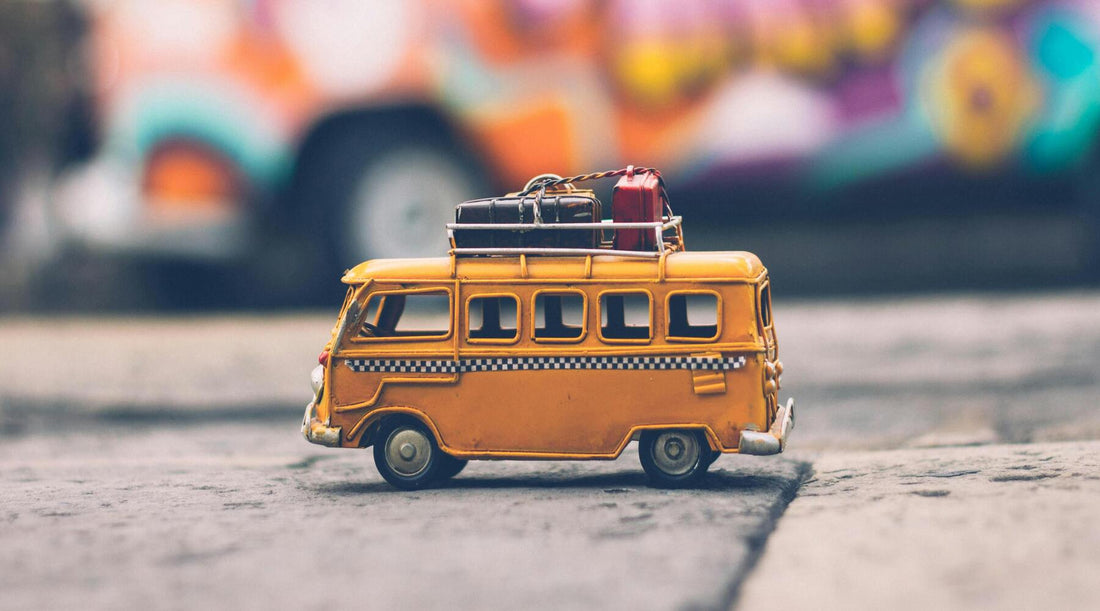How to Prepare for Your Travel? 10+ Free Tips & Tricks

The excitement of traveling to new places is unmatched. Whether it's a trip abroad or a quick getaway close to home, the anticipation builds as you imagine all the adventures waiting for you. However, good preparation is key to making sure everything goes smoothly. Planning ahead ensures that your journey is enjoyable and stress-free.
Imagine yourself at the airport, ready to embark on your dream vacation, only to realize you've forgotten something crucial. It's a nightmare scenario we all want to avoid. With the right tips and tricks, you can ensure that you're fully prepared for your travels and can focus on having fun and exploring new destinations.
Prepare for a international travel
1. First things first, make a full plan ahead
One of the most important steps in preparing for international travel is planning. Having a detailed plan for your first night can set the tone for your entire trip. Start by researching your destination thoroughly. Know where you'll be staying, how you'll get from the airport to your accommodation, and what you'll do on your first day.

Creating a travel checklist can help you stay organized. Include items like your daily itinerary, essential contact numbers, and a list of must-see attractions. You can even print it out using a portable A4 printer to take it with you. Having a physical copy ensures that you're never without your plan, even if your phone battery dies.
Think about transportation options and make any necessary reservations in advance. This could include booking a taxi, arranging for a rental car, or familiarizing yourself with public transport routes. Knowing how you'll get around can save you time and reduce stress when you arrive.
Finally, consider any specific needs or preferences you might have. Do you need special meals, accessibility accommodations, or certain amenities at your hotel? Make sure these are arranged ahead of time to ensure a comfortable stay.
2. Create a thorough travel packing list
A well-thought-out travel packing checklist is essential. Start by listing basics like clothing, toiletries, and medications. Think through each part of your day and what you'll need—this helps ensure you don't forget anything important.
Download an editable travel packing checklist template
Include travel documents, such as your passport, boarding pass, and any reservations or tickets. Don't forget electronics like your phone, charger, and any adapters you might need for different outlets. Packing cubes can help keep your suitcase organized and make it easier to find items quickly.
*anchor-1
3. Check passport, visas, and any other travel documents
Before you leave, double-check that your passport is up-to-date and will remain valid for the duration of your trip. Some countries require your passport to be valid for six months beyond your travel dates.
Check if you need a visa for your destination and apply well in advance. Make copies of all important documents, including your passport, visa, and travel insurance. Keep one set with you and leave another set with a trusted person back home.
4. Prepare the adapters, SIM cards, and currency before you leave
Different countries have different power outlets, so make sure to pack the right adapters. Having a local SIM card can be a lifesaver for navigation and communication. Buy one before you go, or as soon as you arrive. Finally, exchange some currency before you leave so that you have cash on hand for immediate expenses.
5. Take your credit cards and register for other payment methods
Ensure your credit cards will work at your destination. Inform your bank about your travel plans to avoid any security blocks. Additionally, register for other payment methods like mobile wallets or travel-friendly prepaid cards.
6. Set up the translation app
Download a reliable translation app to help navigate language barriers. These apps can translate text, voice, and even images, making it easier to communicate and understand signs or menus in a foreign language.
7. Get a travel insurance
Travel insurance is crucial for covering unexpected events like medical emergencies, trip cancellations, or lost luggage. Choose a comprehensive policy that covers all potential risks and read the terms carefully to know what's included.
8. "When in Rome, do as the Romans do"
Respecting local customs and laws is vital. Research cultural norms and legal requirements of your destination. Being respectful and adaptable can make your experience more enriching and prevent any unintentional offenses.
Getting to know the local traditions can also help you blend in and enjoy a more authentic experience. For instance, learn a few basic phrases in the local language, understand dining etiquette, and dress appropriately for cultural sites. Immersing yourself in the local culture not only enhances your trip but also shows respect to the people of the country you're visiting.
9. Keep contact with your family and friends
Staying in touch with loved ones to let them know you're safe can provide peace of mind for both you and those back home. Sharing your itinerary and checking in regularly helps everyone feel connected and secure. Keeping connected provides peace of mind for both you and those back home.
There are so many ways technology can help keep you connected these days. It might be very reassuring to set up regular check-in times, so your loved ones know when to expect updates from you. Maintaining communication ensures you have support in case of emergencies and helps you feel less isolated while traveling.
10. Travel insurance is also important
Travel insurance serves as a safety net, providing coverage for unforeseen events that could disrupt your trip. Whether it’s a medical emergency, trip cancellation, or lost luggage, having travel insurance can offer peace of mind and financial protection. Before purchasing a policy, take the time to understand what it covers and ensure it fits your specific needs. Investing in travel insurance not only safeguards your finances but also allows you to focus on enjoying your journey without constant worry about the "what-ifs."
11. Make sure you are feeling well
Traveling can sometimes lead to feeling unwell due to unfamiliar food, climate, or stress. It's important to listen to your body and seek help if needed. Your health should always be a priority during your vacation.
Preparing a small first-aid kit with essentials like pain relievers, antacids, and any prescription medications can make a huge difference. Staying hydrated and taking breaks if you feel tired will help you adjust to new environments. If severe discomfort or illness arises, don’t hesitate to seek medical attention. Prioritizing your well-being ensures that you can fully enjoy your travel experience without unnecessary interruptions.
Prepare for a domestic travel
For domestic trips, the preparations may be simpler but still require attention. Here are some basic tips:

- Plan your route: Even for short trips, knowing the best routes and alternatives can save time and hassle. Use GPS and travel apps to navigate efficiently.
- Pack light: Since you’re not going far, only bring essentials. A small bag with clothes, toiletries, and necessary gadgets should suffice. Packing smartly makes your trip more comfortable and manageable.
- Carry important documents: Even within your country, always carry identification, travel tickets, and any reservations. Having these documents handy prevents any minor issues from becoming big problems.
- Prepare entertainment: For longer drives or train rides, download music, books, or movies. Keeping entertained makes the journey enjoyable.
- Bring snacks and water: Having your own snacks can be a lifesaver, especially if you’re traveling through remote areas. Staying hydrated and nourished keeps your energy levels up.
Prepare for a short trip
For very short trips, the key is to stay minimal and efficient:
- Pack only the essentials: For an overnight or weekend trip, a small backpack should be enough. Include a change of clothes, basic toiletries, and any medications you might need. If you don’t absolutely need it, leave it behind. Traveling light helps you move quickly and freely.
- Plan activities: Know what you want to see and do. Having a loose itinerary ensures you make the most of your limited time without feeling rushed.
- Check the weather: Packing according to the weather forecast can save you from any unpleasant surprises. Being prepared for the elements makes your trip smoother.
- Charge your devices: Ensure your phone and any other gadgets are fully charged before you leave. Bringing a portable charger can also be helpful.
The bottom line
Whether you're traveling internationally, domestically, or just taking a short trip, preparation is key. By following these tips, you can ensure a smooth and enjoyable journey. Remember to plan ahead, create thorough checklists, and stay organized. Make thorough preparations, set off with enthusiasm, and enjoy an amazing trip!

